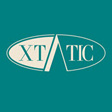Imagine a hospital where patient identification errors are eliminated, medical equipment is always in the right place, and real-time tracking enhances safety and efficiency. RFID technology is making this a reality.
The global Radio Frequency Identification (RFID) healthcare market was valued at $6.9 billion in 2024 and is expected to reach $15.7 billion by 2030, with a 14.6% CAGR from 2024 to 2030. [1]
This article explores how RFID is reshaping hospitals, from tracking assets to enhancing infection control.
Radio Frequency Identification (RFID) Technology Overview
RFID is a wireless technology that uses radio waves to identify, track, and manage objects, people, or animals.
It consists of three main components:
- RFID Tags – Small devices containing a microchip and an antenna that store data.They can be passive (powered by the reader) or active (with their own battery). The unique identifiers contained within these tags have the ability to be automatically and indisputably identified without direct line of sight.
- RFID Readers – Devices that send radio signals to detect and read data from RFID tags.
- Software & Database – Systems that process and store the collected data for tracking and management.
RFID technology has been widely adopted across industries, but its impact is especially transformative in healthcare. It addresses critical challenges in patient care and operational efficiency, making it one of the most valuable advancements in the field.
In the healthcare domain, RFID tags are embedded on the medical equipment and on patient wristbands and medication to facilitate tracking and monitoring seamlessly. RFID systems are used to collect data from the patients, providing healthcare providers with real-time insight into patients’ health status.
This constant stream of data allows for better decision-making and resource allocation. RFID technology is becoming an essential creation of the smart medical environment. Consequently, RFID technologies are the pillar of modern health care innovation.
Advantages of RFID in healthcare

RFID technology continues to demonstrate its value, from solving major challenges in healthcare to enhancing overall efficiency. However, simply listing benefits is not enough without context.
Here’s how RFID delivers meaningful improvements in the healthcare industry:
- Enhanced patient safety: RFID facilitates positive patient identification. The term refers to the practice of checking the identity of a patient each time before administering care. Such identification minimises the chances of medical errors and ensuring that the right patient receives the right treatment.
- Improved medication management: RFID tags on medications can similarly be used to identify each medication before administration. Thus, RFID prevents system errors within the administration and guarantees the proper dosage is administered to the proper individual at the proper time.
- Streamlined asset management and tracking: Hospitals can rapidly pinpoint the location of medical equipment, which will enhance workflow efficiency and avoid delays in patient care.
- Enhanced sterilization processes: With RFID tags in place, hospitals can keep track of sterilization for surgical instruments, helping them to comply with safety standards and reduce the risk of infections.
- Cost savings: An RFID solution helps healthcare organizations save significantly on costs by reducing waste and decreasing errors.
- Improved visibility of the supply chain: The real-time tracking of the medical supplies by RFID helps timely delivery, avoiding shortages.
- Data is accurate: RFID systems lead to fewer human errors. Upon scanning an RFID tag, the databases of a hospital are automatically updated without the need for human input.
- Enhanced workflow efficiency: RFID readers bring in automation around tracking and monitoring processes, allowing hospital staff to concentrate on patient care.
These benefits have resulted in RFID being integrated in various fields of healthcare.
RFID uses in hospital environment
Hospitals have begun adopting RFID technology in nearly every process from tracking patients, to tracking inventory or even to check if routine tasks are completed. Examples include using tags to track babies and providing alerts if they are taken out of the ward.
RFID tags can also monitor temperature or humidity levels. Thus if the temperature of a hospital room or storage unit suddenly spikes or drops, the hospital staff will receive notification.
The ability to track patients and staff can also be used to remotely identify a person and open doors from meters away. Similarly, if an individual must remain in the facilities the doors may lock from a distance. Thе use of patient tracking or others such as medication management will be discussed below.
Patient tracking with RFID
![]()
An important use of RFID Technology in healthcare is patient tracking.
Hospitals track patients in real time with RFID tags embedded in patient wristbands. This helps confirm the right patient flow at all points in the care process, minimizing the risk of medical error and improving patient safety. RFID systems allow healthcare providers to have accurate, real-time data on patients’ locations and statuses, enabling them to be more responsive and effective.
RFID based patient tracking is especially important when dealing with emergencies. Hospital staff can search patients instantly for timely intervention, preventing delays in treatment.
Moreover, RFID can also be applied in patient monitoring. There the device can monitor the patients’ health condition continuously and report crucial data to help doctors make informed decisions.
Not only does this technology help smoothen work efficiency, but it also provides a safe and systematic hospital atmosphere for all. With RFID for patient tracking, healthcare providers can offer better quality care with less risk of errors.
RFID-based medication management
Hospitals are familiar with the consequences of mixing up pharmaceuticals. Medication errors are the most common, and potentially harmful, form of medical error.
RFID technology provides a powerful solution for improving medication management and minimizing these errors. For example, hospitals can place RFID tags on all packaging, or even directly on medication bottles so doctors ensure the right drugs are administered to the correct patients. This system facilitates healthcare providers in ensuring the right medicine is given to the correct patient only at the correct dose and time.
A RFID tag provides the following features for medication management:
- Real-time alerts: RFID systems immediately notify if a potential error occurs such as wrong dosages or incorrect medication.
- Reduced human errors: RFID tags can minimize mistakes in medication administration and provide safer patient care.
- Waste reduction: RFID also helps further reduce medication waste by preventing misuse and improper storage.
- Availability: The technology guarantees that critical medications can be obtained at the time an individual requires them.
- Streamlined processes: RFID systems make medication management workflows easier for healthcare providers.
RFID technology not only improves the health of workers and patients but also makes life easier and more secure. However, RFID technology helps in other areas of healthcare as well such as with inventory management.
Inventory management and asset tracking
Effective inventory control and asset tracking are critical for every hospital’s smooth operation. RFID technology is a holistic solution that allows you to manage your medical and surgical supplies and other assets effectively.
The hospitals use RFID tags, attaching them to the items to track the real-time location and status of the items. The tags guarantee that vital resources are always accessible when required, minimizing patient care delays and streamlining overall workflow efficiency.
RFID systems also enable healthcare organizations to prevent loss and improve resource utilization. Hospitals can automate the inventory tracking process, allowing them to maintain accurate records on stock and ensuring there is no overstocking or shortage.
All in all, with RFID, healthcare facilities can enhance inventory management, track assets more effectively, and dedicate more time to delivering high-quality patient care.
Sterilization and healthcare supply chain management
Sterilization is a vital procedure for every healthcare facility, which guarantees that medical instruments are safe to use on patients.
Through the use of radiofrequency identification technology, tags are attached to surgical instruments that track their journey through the sterilization process. RFID tags for these instruments can help hospitals track their cleaning and sterilization cycles. The easy tracking of surgical instruments ensures compliance with safety standards and reduces the risk of infections. The result of these measures is increased patient safety and trust in healthcare delivery.
RFID improves sterilization processes and provides full visibility into the storage of medical supplies, from manufacturers to hospitals. This ensures timely delivery of critical items while allowing companies to track inventory levels, expiration dates, and storage conditions. Hospitals can determine whether equipment needs resterilization due to improper storage and identify expired items, ensuring safe and effective use.
Safety and security for patients with RFID
As stated before, the most important concerns in the healthcare sector are patient safety and patient security, which are being revolutionized by RFID technology. RFID tags which are embedded in patient wristbands can be used by healthcare providers to ensure that the right medication or treatment is given to each patient.
Implementing RFID technology has several key benefits for patient safety:
- Accurate patient identification: Reduces errors and ensures each patient receives the correct treatment.
- Real-time tracking: Monitors patient movements and conditions, allowing timely reactions and auto tracking clinical interventions.
- Improved security: Restricts access to sensitive areas, protecting both patients and medical staff.
- Infection control: Tracks equipment and staff movement to reduce infection risks.
- Enhanced workflow: Provides real-time data to streamline hospital operations.
Overall, RFID technology can work wonders for healthcare organizations looking to improve patient and staff safety. However, talking about benefits can only convince a hospital to try RFID technology. Implementing this tech is another question.
Implementing RFID systems in healthcare
The successful implementation of RFID systems in healthcare must be a systematic and planned process, as well as to provide maximum return. The procedure is a multi-stage process.
Determining the needs of the organization
RFID applications require healthcare providers to have clearly defined pain points (e.g., inefficiencies in inventory management, patient tracking, or medication administration) that RFID can address.
Knowing what the pain points are only leaves picking out an RFID solution that can meet the specific needs of the organization. Picking a system that harmonizes with existing workflows and infrastructure, however, requires collaboration between healthcare providers, IT teams, and RFID technology experts.
Selecting the right RFID technology
This involves choosing between passive and active RFID tags, choosing the right RFID reader for your application, and making sure the system can manage the amount of data needed.
The need for scalability to future-proof the healthcare organization must also be taken into consideration.
Furthermore, the implementation of RFID systems should be compatible with existing healthcare technologies, including electronic health records (EHRs) and hospital management systems, to facilitate data sharing and operational efficiency.
Training staff
Training is an important part of the successful deployment of RFID. This new system should include training for RFID usage in various systems in the hospital.
Additionally, being clear on the benefits of RFID and how it can simplify their daily tasks can drive adoption and reduce resistance among workers.
Resources for troubleshooting and ongoing support should be provided to be available to meet any challenges that arise through the transitional time. This knowledge allows staff to make the most out of the system and ensures the benefits are realised as intended.
Issues with RFID and ways to mitigate them
There are various advantages for a healthcare facility in setting up and using RFID software in daily operations. But while we’re all for the solution, to base our entire article on it without addressing some challenges ahead would not be fair.
High initial costs
This is one of the obstacles preventing a speedy implementation within healthcare for RFID based systems. RFID technology can be cost-prohibitive, as it requires an upfront investment in tags, readers, software, and infrastructure, making it less accessible for smaller healthcare organizations.
Hospitals can mitigate this risk by introducing a pilot project in high-impact areas like patient tracking or medication management and expanding once ROI has been proven. Moreover, working with RFID vendors for cost-sharing or lease arrangements can lessen initial costs while still enjoying the advantages of the technology.
Data security
Every healthcare facility must place utmost priority at ensuring the security and accuracy of data. RFID systems generate large volumes of sensitive patient and operational data. This data is stored in databases or in the cloud and can potentially be hacked.
Implementing strong encryption and access control protocols for RFID data in healthcare organizations can help reduce such drawbacks. Conducting regular audits to ensure compliance with data security best practices and training staff can help protect further.
Moreover, integration of a RFID system with current electronic health records (EHRs) and compliance with regulations such as HIPAA enhance data integrity and security.
Integration
Another risk is interference with other healthcare technologies. RFID systems work on certain radio frequencies, which may interfere with medical devices or other wireless systems.
A practical way to avoid this issue is for healthcare organizations to perform extensive testing in the rollout phase to detect and remediate frequency conflicts. Using RFID systems with different frequencies or coordinating with vendors for solution customization can serve to eliminate interference as well. IT experts and clinical teams should work together to harmonize RFID technology within their systems.
Resistance from staff
Some hospital staff may resist change, and these are challenges in successful RFID adoption. Employees may be reluctant to embrace new technologies they are unfamiliar with or if they fear the new tech would lead to extended workloads.
Healthcare organizations must put more emphasis on thorough training programs and communication to the staff of the benefits and achievements of RFID. Healthcare providers can then leverage it to its maximum potential by confronting these key challenges with solution-based approaches.
Future trends
RFID technology in healthcare has a bright future and the sector will likely see more investment in the future.
This interest in RFID will lead to the following key trends:
- Miniaturization of RFID tags: Smaller, power-efficient tags will ensure their easy integration into medical devices, wearables, and even implants.
- Improved patient monitoring: RFID will help in the real-time tracking of health data, including vital signs, improving both remote patient monitoring and personalized care.
- Integration of AI and data analytics: Integrating RFID with AI will allow for predictive analytics to better optimize inventory management and patient care workflows.
- Amplified application in telehealth: RFID will play an essential role in telehealth through the monitoring of patient information and confirmation of treatment.
- Augmented supply chain visibility: Modernized RFID solution will empower complete tracking of medical supplies so that delays can be avoided.
- Cost-effectiveness: over time, RFID systems will be lowered in price as technology progresses, leading to increasing implementation throughout healthcare companies.
- Sustainability focus: RFID tags and systems designed for eco-friendliness will resonate with the healthcare sector’s increasing focus on sustainability.
RFID technology will continue to evolve, with new features that are better integrated into the healthcare landscape. The extent of these trends can likely never be exactly predicted, but investing in RFID technology will almost certainly lead to significant benefits for the industry.

Discover how we can help outsource Healthcare projects efficiently
Speak to an expert today, and see how our on-demand IT talent and augmented teams can efficiently deliver value at every step of your roadmap.

Conclusion
In the world of healthcare, RFID technology has come in as a game-changer by providing solutions to improve patient safety, streamline operations, and increase overall efficiency. RFID systems are revolutionizing the delivery of care in healthcare facilities, from patient tracking and medication management to inventory tracking and sterilization processes.
The continued evolution of this technology will only increase the potential of this innovation to address complex healthcare challenges. If your organization needs comprehensive RFID solutions, seeking a partner specialized in healthcare software is one of the best answers.
In that light, BGO Software is a reliable partner with the capability to develop custom healthcare software. BGO Software has experience incorporating advanced technology tailored to the healthcare industry’s specific requirements.
Sources
RFID in Healthcare Business Research Report 2025: Market to Reach $15.7 Billion by 2030 – Increased Value for Hospitals, Clinics and Labs from Smart Labeling and Smart Cabinets Enabled by RFID [1]















